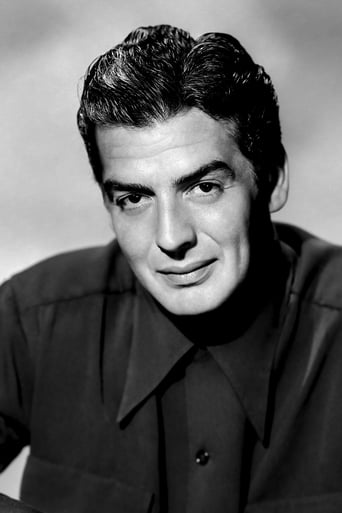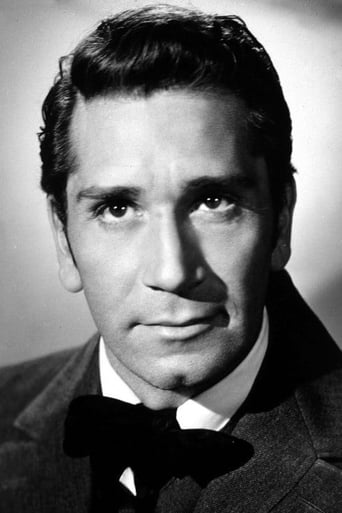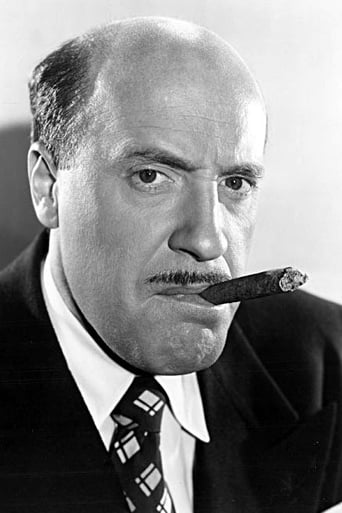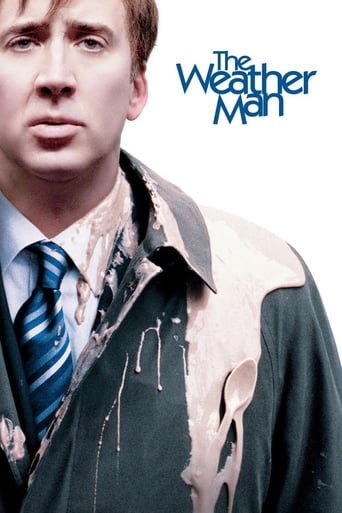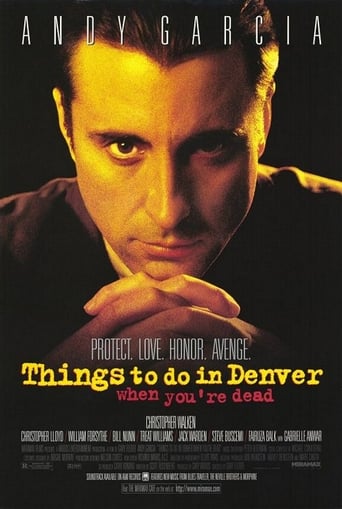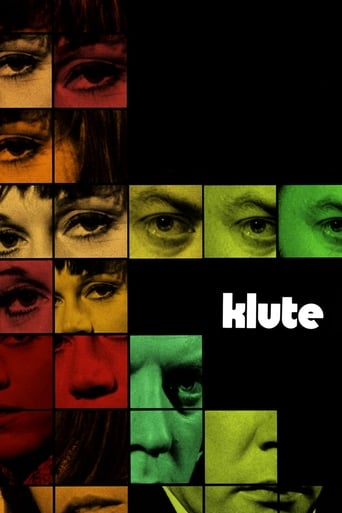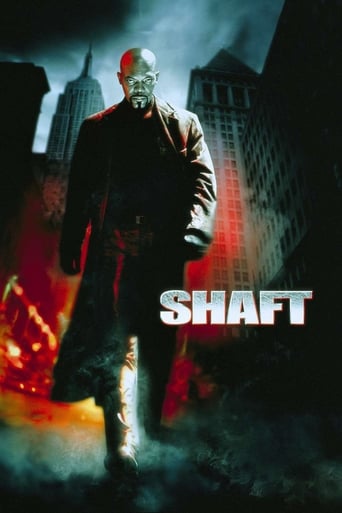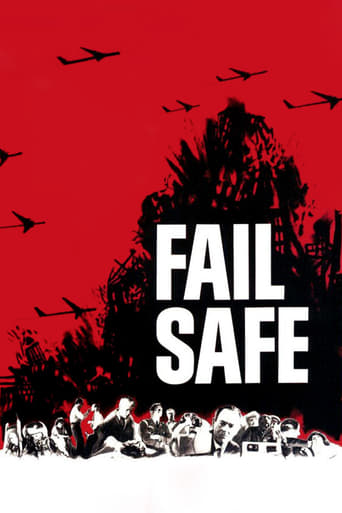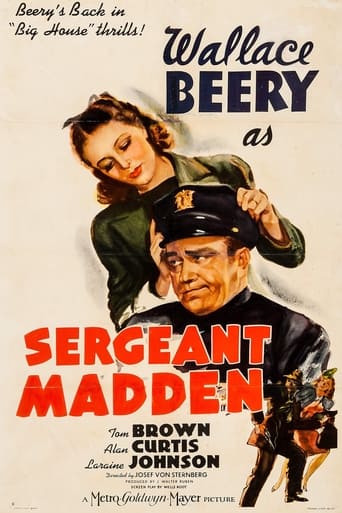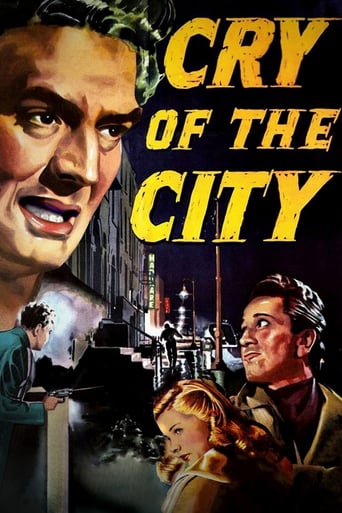
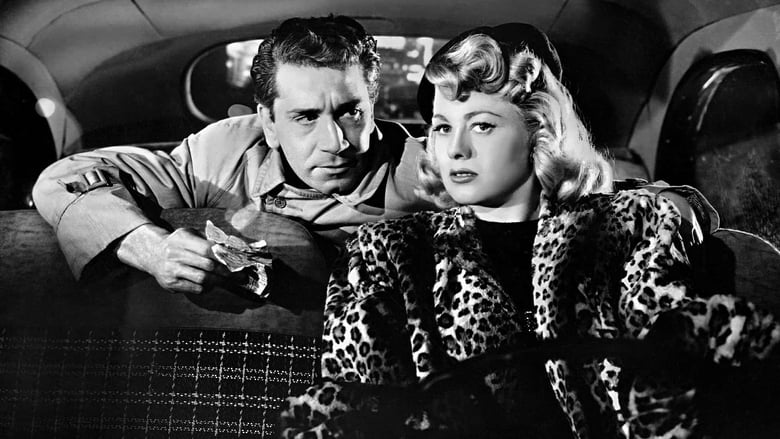
Cry of the City (1948)
Petty crook and cop-killer Martin Rome, in bad shape from wounds in the hospital prison ward, still refuses to help slimy lawyer Niles clear his client by confessing to another crime. Police Lt. Candella must check Niles' allegation; a friend of the Rome family, he walks a tightrope between sentiment and cynicism. When Martin fears Candella will implicate his girlfriend Teena, he'll do anything to protect her. How many others will he drag down to disaster with him?
Watch Trailer
Cast


Similar titles
Reviews
Up there with the 1946 sleeper "Somewhere in the Night", this is one of the best lesser known thrillers of 20th Century Fox's film noir collection. Film noir festivals should focus more on the more obscure films like this since everybody who studies the noir genre has seen the classics like "Double Indemnity", "Laura", "The Big Sleep" and "Detour", to name a few. This practically completely dark film noir is set mostly at night and shows New York City at its most depraved and mysterious. It focuses on two long-time family friends, Victor Mature and Richard Conte, one on the right side of the law, the other accused of killing someone on the right side of the law, playing a game of cat and mouse where only death can bring peace for one of them. There is no doubt in my mind that a certain large actress got her most famous part after being seen in this film, one which could have brought her an Oscar nomination just like that famous part did just two years later.The person I am referring to is Hope Emerson, the amazon woman of the city who gives Swedish massages and could break someone's neck if she wanted to. Yes, this is "the" Hope Emerson whose unforgettable matron in "Caged" remains the quintessential evil prison employee yet could also be lovable and funny when the part called for it. While they do not share any scenes, her "Caged" rival Betty Garde is also here as a tough nurse whose involvement in the plot takes her from the hospital room where suspected cop killer Conte is convalescing to her home where Garde's mother (the always scene-stealing Kathleen Howard) spills some beans to Mature that helps move the plot along even further. It gets complicated, but not convoluted, and that keeps you gripped to the screen.There are two small roles for the film's "leading ladies", Shelley Winters as Conte's girlfriend and Debra Paget as a neighborhood girl who knew both Mature and Conte growing up. Tommy Cook is very Sal Mineo-esque in his role as Conte's younger brother, giving information over a drug store phone in Italian as Mature's partner (Fred Clark) listens in, obviously understanding enough. But for me, it is Emerson who steals this film with her long scene taking care of an exhausted Conte (having escaped), then using her brute force to get her hands on the jewels he had stolen before allegedly killing a cop, and ending up with a gun herself shooting randomly in a Manhattan subway station. Director Robert Siodmark, one of the masters of the film noir genre, leaves no stone unturned in presenting the darkness of society here, and as a result, turns in a masterpiece that really deserves to become a classic.
The message that "crime doesn't pay" is made very powerfully in this gritty crime drama which also acknowledges that wrongdoing isn't exclusively the preserve of recognised criminals. This point is brilliantly illustrated by a cast that includes a corrupt lawyer, an unlicensed doctor and a mature nurse who harbours someone who's wanted by the police. The presence of these types of characters highlights the various shades that exist between pure good and evil as well as showing how varied the motivations for wrongdoing can be. The natures of the movie's two leading characters, however, are far more straightforward.Cop killer Martin Rome (Richard Conte) is being cared for in a New York City hospital after having been seriously wounded during a shootout that took place when he was interrupted in the course of carrying out his latest robbery. Detective Lieutenant Vittorio Candella (Victor Mature) who grew up in the same neighbourhood as Rome and his partner Lieutenant Jim Collins (Fred Clark) soon arrive to interrogate the criminal who's not expected to survive.Candella questions Rome about a piece of jewellery that was found in his possession as it had been the property of a Mrs de Grazia who had recently been tortured and strangled before being relieved of her valuables. Rome denies any involvement in the crime but is also approached by a lawyer called W.A.Niles (Berry Kroeger) who tries to get him to confess to the crime to get one of his clients (who's also a suspect) off the hook. Rome is also visited in the hospital by his girlfriend Teena (Debra Paget) who isn't seen by the police officers.When Rome's condition starts to improve, he gets transferred to a prison from which he escapes and goes straight to Niles' office. There, he finds the de Grazia jewels in the lawyer's safe and after a confrontation between the two men, stabs Niles to death before leaving. Having learnt (from Niles) the identity of the real accomplice in the de Grazia robbery, Rome tracks down a masseuse called Rose Given (Hope Emerson) and offers her the stolen jewels in exchange for a couple of steamboat tickets for South America and $5,000 in cash. Rome then sets Given up to be apprehended by the police so that he and Teena will no longer be suspected of any involvement in the de Grazia case and can make their escape to South America. Candella, however, is a very determined man who has no intention of letting the cop killer escape justice."Cry of the City" contains a number of interesting observations on crime. As Candella and Rome had grown up together as childhood friends in New York's Little Italy, it posits that criminality isn't simply a consequence of social deprivation. Similarly, as Rome has a younger brother who hero-worships him, it clearly asserts that unless some third party intervention is made (in this case by Candella), there's a great danger of the boy simply following his hero into a life of crime. Rome comes from a large and very close-knit family and unusually for a movie of this type, the pain, anxiety and shame that they suffer as a consequence of his actions are strongly recognised.Visually, the movie's dark, rainy streets and neon lights are brilliantly rendered and will be greatly appreciated by film noir fans who will also enjoy the sequence in which the imposing Rose Given is introduced into the action.Victor Mature gives a very strong performance as the hardworking and seriously underpaid homicide detective who goes far beyond the basic requirements of his job and by so doing, benefits the lives of Teena and Rome's younger brother. Richard Conte is marvellous as the ruthless killer whose victims are far more numerous than the number of people he's actually killed or robbed and the members of the supporting cast are also exceptionally good as they vividly bring to life the particularly colourful collection of minor characters who add so much to the enjoyment of watching this great, gripping and thoughtful movie.
Robert Siodmak never failed when it came to Film Noir ("Criss Cross", "Phantom Lady", etc) and doesn't disappoint here with "Cry Of The City", which is as tough and as gritty a noir as you will find. Tense and taut from beginning to finish, this picture has no dead spots and no 'down' time as Siodmak keeps the story moving at breakneck speed. The plot centers on two Hollywood second-stringers in Victor Mature and Richard Conte, who give excellent performances and put the story over in a convincing manner.Mature is the cop, Conte the hoodlum, who has murdered a cop and escapes from a hospital. Mature and his partner, Fred Clark, must find him before he leaves the country. Also in the cast are Berry Kroeger as a slimy lawyer, Shelley Winters as (what else?) a bimbo/ floozy and Hope Emerson as a 'contact' to help Conte in his getaway. Emerson was terrific, and her sinister presence makes you think she should have made more movies.They don't make 'em like this anymore, movies or directors. I thought Victor Mature was perfect as a straight cop with a sensitive side, better even than he was in "I Wake Up Screaming" or "Kiss Of Death". I would put this one right behind "Out Of The Past", which is my favorite of the noir genre.
With his silky manners and glittering eyes, Richard Conte was a prince among hoodlums: elegant, magnetic and sharp as a shiv. As the mugs and roughnecks of the early thirties evolved into more sophisticated postwar gangsters, Conte's regal bearing gloved the gangster's raw aggression in smooth style. (Significantly, he was one of the first Italian-American leading men in Hollywood.) Conte always looks like he's plugged into some private source of electricity, like you could get a shock from touching him. He needs that intensity here, since he plays a wounded criminal who spends most of the movie lying in bed or limping around, dragging a gunshot-riddled leg and crumpling with pain. He still manages to radiate menace and charisma, threatening or seducing everyone who comes near him.Plot-wise, CRY OF THE CITY is that old chestnut about two boys from the same neighborhood (New York's Little Italy, presented with far more nuance and authenticity than Hollywood's usual spaghetti-with-meatballs style) who grow up on opposite sides of the law. Lieutenant Candella (Victor Mature) pursues Martin Rome (Conte) relentlessly after he escapes from a prison hospital; Rome is determined to clear his girlfriend of suspicion in a jewel theft by finding the real culprits. The plot is just a scaffolding to support a series of scenes in which Rome and Candella alternately vie for leverage and influence over an eclectic parade of supporting characters, all of whom seem driven by fear or greed. Desperation inhabits the city like weather. Director Siodmak, one of the masters of film noir, suffuses the film with a dark mood, atmospheric locations, and those corrupted personal transactions that define the genre.In a hospital in the middle of the night a priest murmurs and family-members weep quietly over a dying man who is chained to his bedMartin Rome has just killed a cop in a shoot-out. Later, after he has escaped and collapsed again, his girl (Shelley Winters in a leopard-print coat) enlists an unlicensed foreign doctor to treat him in the back seat while they drive around damp city streets, using neon signs for light. Stolen jewels get stashed in a locker in a subway station. Marty almost meets his match in a massive, burly masseuse (Hope Emerson), who looms over him as he works his bright-eyed, caressing charm. Their scene together is funny, scary and perversely titillating all at once, as the mountainous woman starts to massage his back and then gets her hands around his throat. Sadder is Marty's seduction of a plain, middle-aged hospital nurse who is burdened, we later find out, with a nasty, selfish, annoying old mother. At one point Candella reads off to Marty a list of all the former girlfriends the cop has had to look up, and Marty amusingly reacts to each name with regret, embarrassment or fondness. For this tough guy, sex appeal is as powerful a weapon as a gun or a knifesometimes it's the only one he has.All the time we're rooting for Martyat least I was. CRY OF THE CITY perfectly demonstrates how easily movies can mess with one's moral compass. Marty is a killer and a selfish, remorseless crook, but his élan and vulnerability make him an irresistible underdog. His adversary, Candella, is a self-righteous moralizer, a monomaniacal Javert whose hatred seems inspired more by his enemy's charisma than by his crimes. Victor Mature's heavy, stolid presence sharply contrasts with Conte's proud, dazzling quickness. Someone once described Mature as an intelligent actor cursed with the face and physique of a dissipated life guard; I forget who wrote that, but it hits the nail on the head. The poor guy *looked* like a bad actorall beef and no brainseven though he wasn't. Here his scenes with the Rome family are intended to soften his character, and he does have likable moments, but the way he turns them allfinally even the kid brotheragainst Marty only increased my sympathy for the endangered outcast. His accusation that Marty uses people is fair enough, but he lays it on too thick; it wasn't Marty's idea to enlist the illegal doctor or the "trusty" who helps him break out of jail. Booming, "Stop in the name of the law!" Candella embodies implacable authority, and who could root for that?I like to think that in real life superficial concerns like these wouldn't get in the way of my knowing right from wrong, but this is a movie; style is bound to trump substance. Are films like this onemade under the Hays Code, when movies were not allowed to openly glorify criminalsdeliberately subversive? The script says one thing, but the casting says another. In a way, that hypocrisy is essential to noir, an under-the-radar phenomenon that made caustic comments about human nature while ostensibly endorsing the Ten Commandments. For Martin Rome, a premature death isn't too high a price to pay for all the fun he had breaking the rules. And a clichéd ending is not too high a price for the pleasure of this movie.


